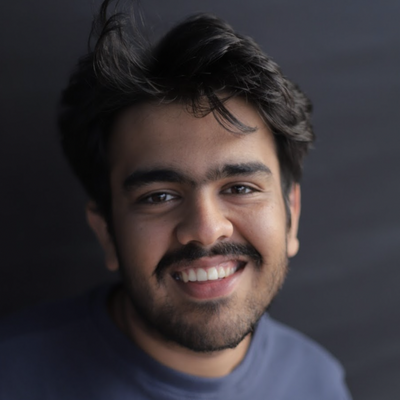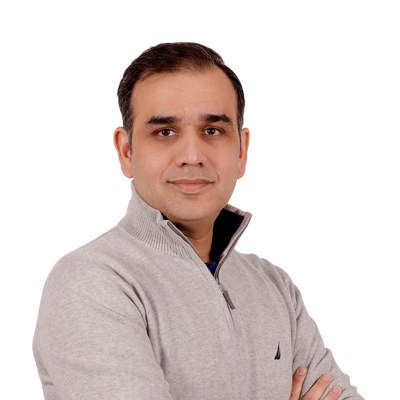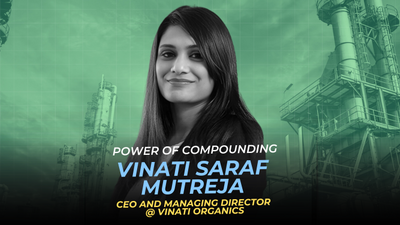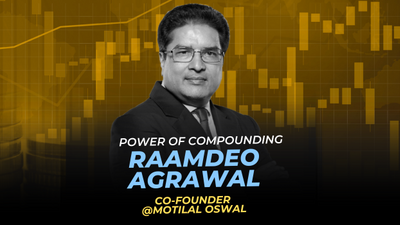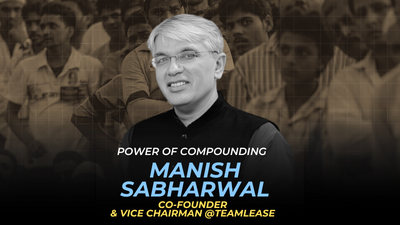Peyush: “What we tell people is we are 20 years behind in eyewear as compared to apparel, shoes and every other lifestyle category.”
If you have noticed, in the past few years, a dash of color and life has been infused into the eyewear market, which was once considered boring and mundane.
Behind the colorful eye-frames and quirky advertisements is a founder who has changed the retail landscape in India.
Peyush Bansal’s Lenskart story starts in Faridabad. But there seems to be no limit to where he’s going next. Throughout his journey, he’s battled apprehension towards eye tests, rising competition from international and national brands, and ever-rising costs.
So far, he has managed to overcome most of them.
But what if we told you that Lenskart isn’t the only ‘kart’ he owned and operated.
From Windows to Glasses
The year 2007 was quite eventful for Peyush. He was solving big problems at Microsoft and was pretty good at this job.
That same year, though, Peyush quit his plush job in the US.
Because back home in India, things were blurry!
Peyush: “Vision was becoming a big problem. I read somewhere that India is the blind capital of the world, and 75% of people in India who need specs are not wearing specs. So it triggered a thought: Why is nobody solving it? And I think I was at an age when things were not as rational and logical as: ‘oh let's look at the market size, see whether there's a business’. It was like, okay, let's try and do it.”
Peyush shut down the windows and decided to set up shop in the garage of his parents’ house in the Greater Kailash neighborhood in New Delhi, India’s capital.
After sussing it out with 14 other freshers constantly tinkering with products, concepts, and designs, the world of venture capital came calling.
Peyush: “Venkatesh (VC at Chiratae) said, "What are you guys up to?” I think e-commerce was hot in those days. And they said, “Do you have a business plan?” We did not have one, but we said we could prepare one. And that's how it all started. And one thing led to the other. We signed an investment in literally a week. We didn't really negotiate that much.”
It’s important to note here that Peyush wasn’t just at the helm of Lenskart. There was Bagskart. Watchkart. Jewelskart, even.
Peyush: “We were like Rs. 10 crores a month in revenue, and Rs. 8 crores used to come from these watches, bags, and jewelry because these are expensive products. Glasses were not so expensive. 70% of our team was doing something else. And 30% were doing the glasses business.”
The revenues looked great.
They had a lot going on. Perhaps a bit too much.
Things needed a shake-up.
Bagskart to Lenskart: A Journey of Focus
The race had shifted gears, with the pursuit to achieve massive business scale, soaring GMV, revenue targets, and the next fundraising spectacle.
Then, the second round brought Ronnie Screwvala into the picture. He ventured into Lenskart's world, visiting their eclectic factory-cum-office in Okhla, where eyewear, watches, bags, and jewelry were all produced under one roof.
One fateful Sunday, as Peyush sat with Ronnie at his sea-facing apartment in Mumbai, the conversation ventured into uncharted territory.
What did Peyush truly aspire to do?
Peyush declared his mission to provide glasses to those who needed them, a vision to make 50% of India see clearly.
In a moment of clarity, Ronnie asked him if this is what he wanted to do, why was he doing bags and jewelry and everything else?
Then came Ronnie's bold proposition: Focus solely on Lenskart, and he'd invest more, eliminating the need for frequent fundraising roadshows and ensuring fair valuations.
Peyush took the idea to Delhi, let it marinate overnight, and made his choice - the path he truly wanted lay in Lenskart, and that's where he'd pour his energy, even though it meant losing 80% of their revenue overnight.
Obsession is The X-Factor
Lenskart certainly wasn’t the first eyewear player in the Indian market. Although they were scattered, mom-and-pop shops commanded the lion’s share of the eyewear market.
What was Lenskart doing differently?
According to Peyush, one thing is paramount when it comes to success: an unrelenting obsession with the customer. It's not just lip service; it's a lifestyle. It's meeting them, understanding them, building things that work for them (and not just for you), staying objective, adapting, and embracing change, even when it's tough.
Investors often bombarded Peyush with questions about Warby Parker's model and Titan's numbers. It made him feel like an outsider. He never bothered about checking them as he had no time for distractions or breaks. They were fixated on a singular goal – ensuring that customers received their glasses, even when the world was falling apart during the pandemic. It's an obsession of an entirely different breed.
Peyush: “We started opening stores, and a lot of people today ask me, you were the first person to start ‘omnichannel.’ You know, I never started omnichannel. I didn't even know the word omni. All we knew was that there were customers I was talking to, and they were not buying from my website. And while everybody was trying to figure out how to get more people on their website, I wanted to understand why people who are coming to our website are not buying.”
Choosing role models: Maruti, Uniqlo, and Asian Paints
Looking back, it’s interesting how Peyush pulls inspiration from unique companies such as Maruti, Uniqlo, and Asian Paints.
While he admired Maruti for its focus and obsession with the Indian customer and executing products with deep insights, he also took a page out of Uniqlo’s book when it came to product differentiation in the lifestyle category.
When it came to Asian Paints, though, he is inspired by how they took bold steps for manufacturing en masse and ended up owning not just a sizable part of the market but also a top-of-the-mind recall for the discerning Indian audience.
In one of our podcasts, Manish Sabrawal attributed many of Bengaluru’s success as a startup hub to its role models, emphasizing how the role models we chose decide our trajectory.
For Peyush, a lot of Lenskart’s philosophies are inspired by such timeless institutions that have continued to provide immense value to their customers.
The Three A’s: Awareness, Affordable, Accessible.
Peyush: “There’s a difference between a company and an organization and an institution, we were very clear that we wanted to create an institution, which is not short term and it needs to be really long term and sustainable.”
This is not just hyperbole.
Peyush wants to build an institution with a clear long–term mission: making people aware of eyewear that is accessible and affordable.
One of the biggest problems? Lack of eye testing that isn’t just limited to rural areas, but urban ones too. But Peyush’s entrepreneurial mind looked at it as an opportunity, and they started offering eye check-ups in Lenskart stores.
What’s particularly interesting about Lenskart’s eye tests is that after the eye test, if you do not want to buy from Lenskart, it is totally fine. Peyush looked at it as a way of delighting future customers before they even bought anything. And, of course, going a step closer towards fulfilling his vision of serving 50% of our country’s population.
Peyush: “Today about 60% of eye tests that happen at Lenskart are by people who have never had their eyes tested before.”
Make in (Rajasthan) India
Peyush: “I think there's this incredible confidence now, both as a country and specifically within Lenskart to say that we can service, and build world-class products in India.”
Fascinatingly, Peyush is setting up a massive factory in Rajasthan near his home state.
The factory is large enough. So is his ambition.
Peyush: “let's put a hundred million dollars into building a factory, which can serve 50 million people a year, because if you want to serve 200, 300 million, then it would be required. So let's make a factory to serve 50 million. And then we'll make another one to serve a hundred and make another one to serve another 200. So by the end of it, we are serving 350 million people, and 700 million people in India need glasses. So that's how we'll get to 50%. That’s the math we were thinking in our heads when we made that bet.”
Along with setting up factories for mass production, Peyush and his team are also relentlessly working at the grassroots level by empowering and training women in the villages of Rajasthan to scan people’s eyes and detect vision problems.
Peyush was heavily inspired by Reliance Jio’s strategy of connecting the nation by providing cheap data, which was only possible by first doing the grunt work of laying down fiber cables.
Infrastructure was their foundation for growth.
Similarly, the vision of providing quality eyewear to half a billion Indians would be impossible without setting up their manufacturing unit.
But Peyush’s list of bold investments doesn’t end here.
Investing in Tech, Data, Talent
As profits started rolling in, Lenskart began planting seeds of new technology, such as Augmented Reality (AR), into their products. Their vision? A future where anyone can scan their eyes on a mobile phone, eliminating the need for physical visits.
While generative AI is a welcome ally, Peyush decided to reinvest a chunk of their profits in three fundamental areas - technology, data, and talent.
But betting on people has its challenges.
Peyush: “We didn't win some of these battles, honestly. When an engineer comes out of IIT or NIT, their first preference is to work at Amazon, Google, or Facebook.
We said that they have to want to work at Lenskart and want to work without us paying them shitloads of money because we do not want to buy them.”
For Lenskart to attract the right kind of people, it had to work on something that ate strategy for breakfast.
Culture compounds: Founders are the custodians of culture
Peyush: “I think one core thing, which is above all of it, I spoke about customer obsession, team obsession, thinking, investing in the core, I think is to compound is culture.”
Spending his formative career at Microsoft, Peyush understood the importance of building a common lexicon and value set in the company.
While scaling from a mid-sized company to a large one, it is extremely important to grasp who holds the keys to the machine, i.e., who is making the decisions.
Peyush is clear about who holds these keys - the founders. Even if it means that at early stages, they have to do things that will not scale, they should still do it to walk the talk and set the organization’s culture.
For instance, he insists that for early-stage companies, it is important that the founders act as recruiters to evangelize their companies to prospects and then sit in interviews to check if a candidate fits with their values. While Karthik gave examples of Naveen Tiwari of InMobi and Aditya Ghosh of IndiGo, who interviewed every candidate personally, Peyush agreed that it is the “right thing to do, even if it may feel like a waste of time.”
Once you are off the ground, you must assemble a like-minded team in the next three to six months. Even with a brilliant concept, a solid proposition, and unwavering clarity, the future remains unchanged without the right people by your side.
It’s true what they say.
Founders are the company’s first custodians of culture.
Advice for young founders
Finally, Karthik asked Peyush for his two cents for young entrepreneurs.
- Clarity of vision: You must be resolute in your "why," your actions, and the driving force behind them. Motivations vary, but that's okay. What's crucial is the sharpness of your vision. Communicate this clarity to others because, in a world full of voices and opinions, the only one that should matter to you is yours.
- Make it 10X better: Peyush noticed a common obsession among founders – the relentless pursuit of sales and marketing. To them, growth hinges solely on marketing. Their product is good, the packaging is good, and they're content. But the truth is: good isn't enough; it's greatness that counts. Don't settle for 1x or 2x; aim for 10x better. Shift your focus from marketing to product excellence. When your product is 10x superior, marketing becomes an inevitability, not an obsession.
Peyush: ‘You have to build something real and know that the honeymoon ends.”
Whether Lenskart is still in its ‘honeymoon’ period is up to anyone’s guess.
But one thing is for sure.
The world feels a lot more clear ever since Lenskart has come to light.
This was an edited excerpt from the first episode of the second season of Blume’s Podcast. You can listen to the full episode here.
Spotify
Youtube
Carve Outs:
- Subroto Bagchi’s book: High-Performance Entrepreneur
- Ronnie Screwala’s book





